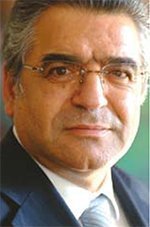Funds capitalising on distressed market
The recent interest in private equity investments in Spain is seeing international funds finally taking
advantage of the distressed assets market and more competitive pricing to buy up important domestic
businesses.
The largest deals in recent times include US-based Bain Capital’s purchase of business process outsourcing
and customer relationship management company Atento from Telefónica for €1.051bn, Singapore-based
Temasek’s purchase of a €1.036bn stake in Repsol, and British investor Doughty Hanson & Co just acquired
Spanish hospital operator USP Hospitales from Barclays and Royal Bank of Scotland for €355m. This latter
transaction was the largest to-date in the Spanish health sector, a particular focus of recent investor interest, say
lawyers, capturing 14 percent of last year’s investments.
A deal between the American Hospitality Properties Trust (HPT) and NH Hoteles is also currently under
negotiations. This would see the Spanish hotel chain received a cash injection of around $375m.
Such transactions, of course, are good for the economy while providing opportunities for law firms.
For example, Uría Menéndez and Kirkland & Ellis were amongst the firm’s mandated on the Bain/Atento deal,
while on the USP Hospitales transaction, Ashurst actedfor Doughty and Allen & Overy for the sellers.
Lawyers are also seeing funds with renewed interest in developing in the Spanish market. Earlier this year,
for example, Blackstone strengthened its practice with the appointment of Inaki Echave, former Partner from
Magnum Capital (the largest independent buy-out fund on the Iberian Peninsula), as Managing Director of its
private equity group responsible for Spain and Portugal.
But while big investments transactions are on the increase, so are those in the mid-market. SMEs are
big business, with much investment being made into companies worth less than €5m. As traditional banking
funding is scarce, these alternative sources of funding could be the way forward for Spain’s companies to
boost their liquidity (see our Banking & Finance Annual Report pg27).
But this could have wider implications for international interest, not least because of the types
of assets being purchased. “We are seeing more funds interested in Spain, although these are not
traditional private equity firms looking for leveraged buy-outs,” comments Guillermo Yuste, a Banking
and Finance Partner at Araoz & Rueda. Law firms point to the growing appetite of funds looking at cutprice
distressed assets, usually real estate or bad loan portfolios, and also towards privatisation or industrial
assets. As such, there is a more fluid approach by investors – namely for large assets that can provide
short-term returns.
Concerns have been raised that such an investment pattern – funds buying up troubled assets and selling
for short-term gain – could hinder the recovery of the economy. Lawyers, however, take a more pragmatic
perspective.
“Each investment fund has a different position,” one Madrid-based Banking Partner told Iberian Lawyer
off the record. “Pension funds, for instance, will take the long-term view and look to the flow of revenues
over a 10-year cycle. At present, there is less of that in Spain and we’re seeing much more opportunistic
investments.”
As funds can also provide a decent alternative source of liquidity, this provides a much-needed
boost to the balance sheet of a company as well as the wider economy.
This means that the viewpoint that so-called ‘vulture funds’ will hinder the market is somewhat
unrepresentative, some say. ‘Vulture funds’ is a term that the private equity market does not like as
it implies an outdated model where firms purchase struggling companies, strip the assets, sell for a profit
and move on.
It seems like investors are being more opportunistic rather than looking at these transactions in the longterm,
but all international investment is beneficial.
Funds may not be looking at the long-term but they can still add value and help restructure businesses.
Spain’s Business Competitive Council (CEC) recently visited London to encourage investment in Spain’s
multinationals with a delegation including Iberdrola’s Chairman Ignacio Galan, amongst others. Spain was
even cited as a key investment target by former French President Nicolas Sarkozy in relation to his plans to
set up a $100bn fund with the backing of the Qatar Investment Authority.
Even so, Spain still faces a number of hurdles. The problems in the banking and real estate sectors will take
a long-time to clear up, while macro-economic factors – such as high unemployment and the continuing
concerns over the Euro – are restricting some investors’ appetite, say lawyers.
But, they say, all indications are that this interest in the distressed asset market will continue to gain
momentum, and that the old private equity adage holds true: where there is risk, there is opportunity.











